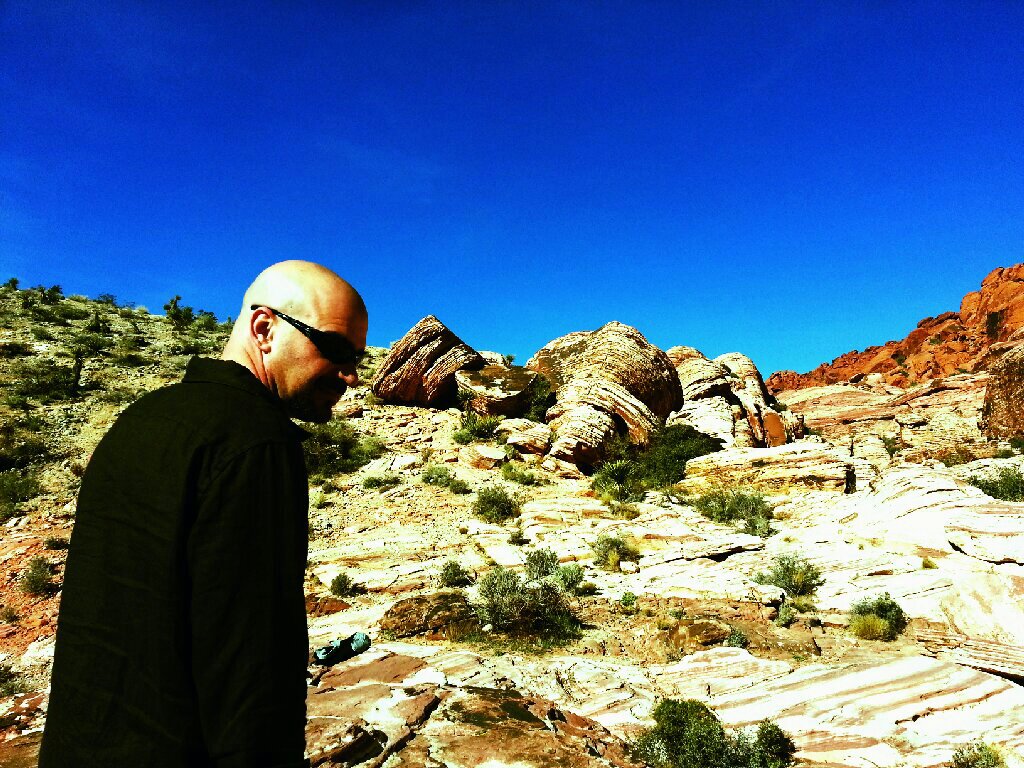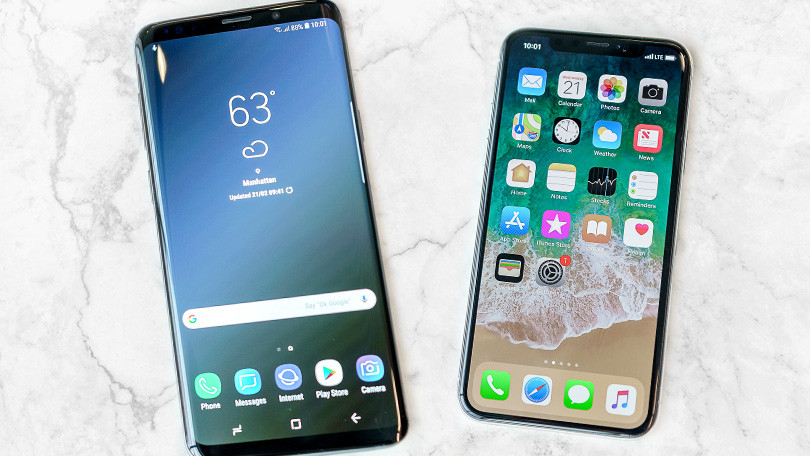Is there such a thing as absolute truth? This simple question has tormented mankind since he first became able to contemplate such “deep thoughts.” Over the Christmas holiday I had a chance to watch the movie The Invention of Lying starring Ricky Gervais. For those who haven’t seen the movie, here’s the gist of the plot: the world is a place where everyone always tells the truth and no one lies. Without lying, much of what people say to each other appears fairly harsh. In one scene, Ricky takes the girl of his dreams out on a date and the waiter quickly acknowledges that she is “out of his league.” As the story unfolds, Ricky’s world begins to crumble around him and he finally decides to tell a lie to get himself out of a jam. This one decision catapults him into a world that is only limited by what he can get other people to believe.
The Invention of Lying starring Ricky Gervais. For those who haven’t seen the movie, here’s the gist of the plot: the world is a place where everyone always tells the truth and no one lies. Without lying, much of what people say to each other appears fairly harsh. In one scene, Ricky takes the girl of his dreams out on a date and the waiter quickly acknowledges that she is “out of his league.” As the story unfolds, Ricky’s world begins to crumble around him and he finally decides to tell a lie to get himself out of a jam. This one decision catapults him into a world that is only limited by what he can get other people to believe.
After watching the movie, I spent a good deal of time thinking about what we consider “truth” in our society today. There are many people who believe they have discovered the absolute truth; the truth that is unquestionably the only way things “are.” As we watch TV, listen to the radio or read “news” from the media, we are exposed to people promoting the one, right way we should view a particular circumstance or topic of discussion. The recent “controversy” with GQ’s interview of Phil Robertson (from the show Duck Dynasty) is a good example of this phenomenon. The media has bombarded us with “experts” from both sides of this “issue” who know what we should think about that particular situation and what needs to be “done” to protect the “truth.”
Most of what we believe as truth we obtained from both our family & friends and our life experiences. One such truth is our religious beliefs. Some of us were raised in families that taught us certain beliefs about who God is, how we should worship him, what we should do to keep him “happy” and what consequences we may face upon death for failing to act according to his law. Others were taught to revere all creation yet not believe in a single, omnipotent creator of all. Still others were raised with no belief in any type of God whatsoever. With all these different expressions of “faith” around the world, how can we determine who is absolutely right? Is it all? Is it none?
Wars have been fought and countless lives lost as one group has placed its “truth” on the pedestal as the absolute above all others. While many think that we can arrive at absolute truth with the right amount of work and effort , I believe the answer is much simpler; truth is not absolute, rather, it is “alive” and evolves just as all living things do. Our current truth can only grow and expand as we increase our our level of awareness and remove the limits on what we allow into our experience.
One area we can examine to help us understand the concept of evolving truth is technology. The changes in technology in the 500 or so years since Columbus discovered America have had a tremendous affect on humanity. Many inventions such as indoor plumbing, air conditioning, telephones and cars have made our lives cleaner, more comfortable and allow us to easily connect with one another. Many of these advancements evolved over a rather long period of time. For example, although a steam version of the automobile was invented in 1769, cars were not popularized until 145 years later when the internal combustion engine and mass production techniques were developed. Today the automobile is a very sophisticated machine that does much more than just move people from point A to point B as its great, great, grandfather did 245 years ago. And while this evolution in “truth” about the automobile took quite a long time, there are other items we use that have evolved much more quickly.
 Take a look at these items from our past; a day planner, a calculator and a bag phone. Just a mere 20 years ago many of us used these devices regularly in our lives to manage our time, make calculations or keep in touch with others when we were away from home. I can remember how cool it was to be able to make and receive phone calls in my car (and how short those conversations were since the airtime was charged at $0.10 per minute!) I can also remember when I purchased my first Palm Pilot and was able to have all my calendar entries and address book updated with my computer on a regular basis. At that point in our lives, that was the “truth” about what I was possible or, further, what existed.
Take a look at these items from our past; a day planner, a calculator and a bag phone. Just a mere 20 years ago many of us used these devices regularly in our lives to manage our time, make calculations or keep in touch with others when we were away from home. I can remember how cool it was to be able to make and receive phone calls in my car (and how short those conversations were since the airtime was charged at $0.10 per minute!) I can also remember when I purchased my first Palm Pilot and was able to have all my calendar entries and address book updated with my computer on a regular basis. At that point in our lives, that was the “truth” about what I was possible or, further, what existed.
Fast forward to today. Many of us are using phones like the Samsung Galaxy or the iPhone that have combined all these functions into a single device. In fact, they also have many of the features of our regular computers allowing us to send email and read or edit documents directly on the screen. The applications we can add to these devices (now in excess of 1,000,000 for each platform) are truly amazing  and can provide everything from a laser level to a music tuner. And don’t forget that we can video conference with someone anywhere in the world for free (I can remember making long distance phone calls from college and having to use a special “long distance phone card.”)
and can provide everything from a laser level to a music tuner. And don’t forget that we can video conference with someone anywhere in the world for free (I can remember making long distance phone calls from college and having to use a special “long distance phone card.”)
Today, we keep these phones with us all the time and expect to easily connect with anyone whenever the mood strikes us. I remember going shopping with my parents and, when we decided to shop in different stores in the mall, we agreed upon a place and time to meet up. Today, we don’t even think that way anymore; we just go our separate ways and call or text each other about where we will meet. That small shift in technology has defined a new “truth” for us and our expectations about what is possible.
What has happened in this relatively short period of time in technology points out to us the problem with a singular, absolute truth; what we know to be true evolves over time. Think about going back in time and explaining to someone from 1993 what our cell phones can do today. Now think about explaining it to someone from 1870. Both people we encountered would have a hard time believing our assertions of what was possible, however, the person from 1993 would have a little easier time accepting it. Why? Because the person in 1993 is further along the journey than the person from 1870. As we progress in our individual life journey, our ever growing and varied experiences make it easier for us to see more possibilities so long as we remain open to them.
In our individual lives and our development along our life’s journey it is our willingness to question the “perceived” truth that allows us to grow. If we are rigid in our thinking or our beliefs we cannot evolve and we remain at our current level. Think about the people you know who have never traveled far from where they grew up. How are they different than those you know who have been to a foreign country? When we allow ourselves to move outside our comfort zones we expand our understanding of life’s possibilities.
But truth is not just something we experience through external circumstances; it is also an internal force that can have a tremendous affect on us. We must also be willing to look inside ourselves and recognize the programming we have received from our environment, our friends and family and our experiences. We must understand what dragons we have created for ourselves that hold us back from moving forward on our journey. Whatever we hold true in our thoughts remains in our experience. If we have always believed we did not deserve to be financially successful it will remain difficult for us to achieve financial success until we examine the truth of that belief. If we believe there is no partner out there perfectly suited for us their presence will continue to allude us until we have examined the truth of that belief.
What we believe to be true will continue to manifest itself in our lives. If we want our experience to change, we have to change our thinking about what is possible for us and that is how we open ourselves to the truth.
